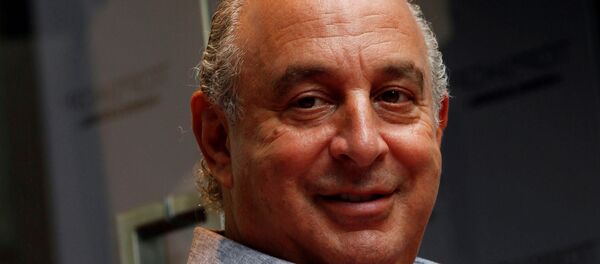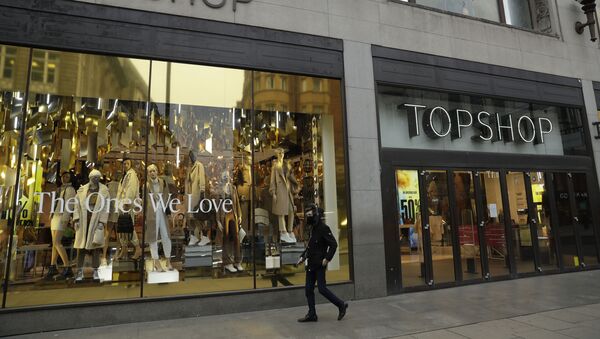Arcadia, a British fashion empire owned by Philip Green, who was once dubbed "the king of the high street", has been placed under bankruptcy protection, putting some 13,000 jobs at risk.
The British government has promised to support those affected, especially in the run-up to Christmas. While Arcadia, which owns a number of brands including Topshop, Dorothy Perkins and Miss Selfridge, blamed its collapse into administration largely on coronavirus fallout, Christopher Bovis, professor of international business law at the University of Hull, believes that the pandemic is not the main reason for the retailer's fall - the fashion giant has seen years of underinvestment and failed to recognise the shift to online shopping.
Sputnik: What, in your view, has led to the retail giant's collapse into administration?
Christopher Bovis: The acquisition of Arcadia Group in 2002 for 850 million was a fair price. However, within a decade, that price was deemed excessive for the very reason that the Arcadia Group and its owners failed to keep up with technological evolution affecting the high street and retail sector and to respond to the increased competition from low-cost rivals like Primark, and online retail disruptors such as ASOS and Boohoo.
Sputnik: Senior UK Minister Michael Gove has said that the Arcadia story was a tragic one and blamed management for blunders. What mistakes were made and why?
Christopher Bovis: The demise of Arcadia started in 2005 when an advanced dividend policy saddled the company with debts which took priority in servicing over investment in the businesses. The dividend policy was an aggressive accounting practice in extracting profits from future performance. The magnitude of senior debt was such as to suffocate the actions which could have made Arcadia relevant to retail practices and customer expectations. The extraction of the dividend was legal but raised many concerns of its motive and was deemed an accountancy acrobatic practice. Auditors sanctioned the dividend policy but commentators and competitors alike were critical.
Sputnik: The company's CEO, Ian Grabiner, however, said that “the impact of the COVID-19 pandemic including the forced closure of our stores for prolonged periods" has severely affected trading across all of their brands. How do you assess the impact of anti-COVID measures on business? Could the Arcadia case be a signal for the government, which is poised to decide on even tougher restrictions today?
Christopher Bovis: Arcadia, like most high street retailers, was hit by the pandemic. Management is quick to blame the impact of COVID-19 for its demise. However, the Group was deemed “worthless” before the pandemic and was only a matter of time to confront its collapse. High street outlets such as Arcadia Group companies are tied down through long leases for property, a fact which compounds on collateralised debt obligations. The collapse of the Group was inevitable.
Sputnik: Do you expect Arcadia to have a "domino effect" on other businesses? Which sector might be hit the hardest and why?

Sputnik: What's next for Arcadia and thousands of its employees?
Christopher Bovis: The owners of Arcadia agreed a pension deficit reduction schedule with the UK Pensions Regulator in 2019. The main reason for the persistence of deficit in the pension fund over many years is the extraction of £1.2bn dividend from the Group accounts of Arcadia in 2005 which significantly weakened the company’s balance sheet and undermined its ability to make catch-up pension contributions. The size of the pension fund gap is yet to be determined but could be reduced by claims on Arcadia’s properties. In any event, the owners of Arcadia should recognize their moral responsibility, as with the previous case of BHS stores closure, and make good any shortfall in the pension fund.



